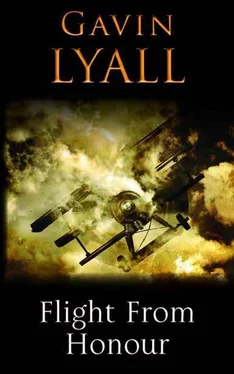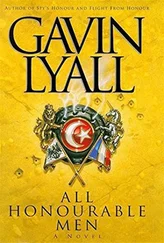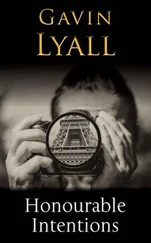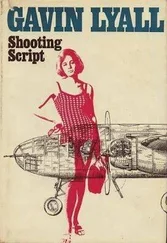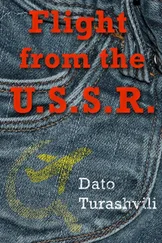Gavin Lyall - Flight From Honour
Здесь есть возможность читать онлайн «Gavin Lyall - Flight From Honour» весь текст электронной книги совершенно бесплатно (целиком полную версию без сокращений). В некоторых случаях можно слушать аудио, скачать через торрент в формате fb2 и присутствует краткое содержание. Год выпуска: 2013, Издательство: PFD Books, Жанр: Шпионский детектив, Исторический детектив, на английском языке. Описание произведения, (предисловие) а так же отзывы посетителей доступны на портале библиотеки ЛибКат.
- Название:Flight From Honour
- Автор:
- Издательство:PFD Books
- Жанр:
- Год:2013
- ISBN:нет данных
- Рейтинг книги:4 / 5. Голосов: 1
-
Избранное:Добавить в избранное
- Отзывы:
-
Ваша оценка:
- 80
- 1
- 2
- 3
- 4
- 5
Flight From Honour: краткое содержание, описание и аннотация
Предлагаем к чтению аннотацию, описание, краткое содержание или предисловие (зависит от того, что написал сам автор книги «Flight From Honour»). Если вы не нашли необходимую информацию о книге — напишите в комментариях, мы постараемся отыскать её.
Flight From Honour — читать онлайн бесплатно полную книгу (весь текст) целиком
Ниже представлен текст книги, разбитый по страницам. Система сохранения места последней прочитанной страницы, позволяет с удобством читать онлайн бесплатно книгу «Flight From Honour», без необходимости каждый раз заново искать на чём Вы остановились. Поставьте закладку, и сможете в любой момент перейти на страницу, на которой закончили чтение.
Интервал:
Закладка:
“Just resting.”
Smudges of steam, slow to dissolve in the cold air, drifted past. “Except,” d’Annunzio said in a sonorous voice, “for the souls of unfinished journeys, turned to ghosts.”
“I said it would inspire you.”
“Pff, just description, sterile imaginings.” A flick of his hand threw it away.
“A lot of-” But then the sleeping-car attendant noticed two of his charges were awake and came along the corridor to assure them that the train would move on at any moment. Meanwhile, could he bring them anything? D’Annunzio politely deflected the question to Corinna. She shook her head. “Not for me.”
“ Ni moi, merci – un moment: vous n’avez-pas des cigarettes?”
The attendant hadn’t a stock, but happily gave d’Annunzio one of his own, lit it for him and said good-night. D’Annunzio took a cautious drag, stifled a cough, and murmured: “Horrible. Truly horrible. I smoke only weak cigarettes and not often, but tonight I am restless . . .”
Corinna eyed him cautiously, having a clear idea of what men got restless for on night trains. Women, too, she admitted, in view of last night. And as for ocean liners . . .
D’Annunzio took another careful puff. “You are saying?”
What had she been saying? Yes. “Just that a lot of good poetry is description and recollection.”
“Most often by your English poets – if you also claim them as your own. But for me, I am tired of just describing. It is not enough.” He paused, then went on thoughtfully: “To make people say ‘I recognise’ or ‘I remember’ no longer satisfies me. And even when my words are spoken by a great voice and spirit – I have heard Sarah Bernhardt and Eleonora Duse make audiences weep with my words . . . but I have doubts. Here, at this hour, in this ante-room to the Inferno, I doubt my own words. Was it those words – or those voices? Would the audience have wept if Duse had read a railway timetable?”
Curious, Corinna asked bluntly: “Are you jealous of actresses?”
“Envy, envy – it is the great Italian sin. In a world of riches and power, we have only beauty and envy.” He dropped the unfinished cigarette on the floor and was about to stamp it out, then realised his slippers were too thin, and kicked it aside.
“A lot of countries have only got the envy,” she said diplomatically.
He didn’t take it as diplomacy, and snapped: “Italy is not a lot of countries! It is Italy – of Rome and Dante and Venice and Michelangelo . . . And one day I will speak words worthy of them, not in the theatre but in the world, that will rouse Italy again to her true glory. I feel it, that I am alive at this time to do this.”
Startled by his sudden passion, Corinna looked away, through the window. A hunched figure swinging a lantern trudged up the track, going quietly about his job, probably with no idea of how it fitted into the complexity of the shunting yard. And probably content with that. “There’s a lot of people around Europe, quite enough already, I’d think, giving speeches like that-”
“Then Italy deserves the finest and most rousing.”
“D’you mean war?” she asked flatly.
“Yes.” He stood four-square, facing and challenging her. She looked at him for a moment, then turned to the window again and began speaking quietly.
“I know a soldier – an artillery officer. He fought for the Greeks in Macedonia last year, and told me something about it. Mostly it was mud and cold and marching and being hungry and scared. Just moments of excitement, then the same thing only now with men dying of gangrene with no medical aid. And finally – not in his area, thank God – typhus, too, so the ones who lived to go home found they were kept out of their own villages. In the end, you got all the Four Horsemen. He believed it could happen all over Europe.” She looked at him. “To your beautiful Italy, too.”
D’Annunzio seemed unmoved, but nodded to show he had understood. “No. Your friend fought only in a peasant brawl. Serbians, Bulgarians, what do they know of modern war? Even the Greeks – and I love Greece – they cannot be Romans. True war, our war, will indeed be terrible, but it will be quick. Quick as an aeroplane, as a torpedo, as a bullet is quick. And the suffering will be terrible, worse than anyone can imagine. But true courage is to know this and still to go into the fire, seeking to be destroyed – or cleansed and made free and strong once more. Because only the strongest will survive, only a Dante may come back from the Inferno. That is the justice of war. It will be the . . . the . . . crucible that will create our new leaders, to sweep away the old feeble ones elected by bribes from the Camorra.”
She couldn’t argue about the length of any future war; a lot of people believed it would, must, be quickly over. But: “A lot of your bravest and best are going to be the first to get killed. And your crooked politicians and gang bosses aren’t going to get anywhere near a bullet. Be careful they aren’t the only ones left to be your leaders.”
“The fire will destroy many, but it will make more strong those who live. And the people who have been through the fire also, they will never be led by any others.”
His voice stumbled and strained against the barricade of a foreign language, but that only added to his sincerity. And she saw, bursting through the shell of self-indulgence and disrepute, the attraction of the man. Sure he loved himself, but mostly for what he believed he could do, in his art, in his patriotism. He was reaching outside himself, and not always for the nearest woman.
They just come with the mail, she thought, reining in her admiration. So she said in her mildest tone: “Forgive me asking, but had you any specific enemy in mind? – or just a good old war?”
He seemed about to reply, then clamped his mouth shut. And then he said: “Flying machines – such as your brother has made. You have seen the lion in the Piazza San Marco? You remember it has wings? I, Gabriele d’Annunzio, shall give him wings again. I vow it.”
Corinna sat for a while on her bed, picking over their conversation as if summarising it for a report to her father. There was no doubting the sincerity of d’Annunzio’s patriotism any more than its power. It was a smart move to harness that to selling the Oriole. But she had to remember the Falcones were up to something else, something that interested Ranklin and the Bureau. Something that had brought assassins to London. She could only pray they were separate deals – and keep an eagle eye open for a connection.
A couple of hundred miles ahead of them, Ranklin sat on the edge of his non-de luxe sleeper bed and lit a cigarette. He disapproved of smoking in bed, so sitting up was his compromise, despite the Alpine chill. The cigarette was to stop thoughts prowling restlessly through his head and it wasn’t working.
He was glad to be heading out on a new task; such jobs were the core of his new trade. But he was also scared he would find Trieste as recent newspapers drew it: flourishing and prosperous rather than discontented and yearning to riot. And the idea of handing out revolutionary pamphlets at shipyard gates didn’t fit with his image of Senator Falcone. It lacked flamboyance; something was missing.
Did Dagner know what that missing something was? Or had he got his teeth too firmly into his ‘mission’? That wasn’t a good position from which to see the whole picture. And the business of Dagner’s wife . . . Spies are liars; they have to be. But not when they’re so easily proven wrong, like whether their wives are alive or dead. So perhaps his superior hadn’t so much been been lying as . . . as what? No answer he could think of promised him a good night’s sleep.
Читать дальшеИнтервал:
Закладка:
Похожие книги на «Flight From Honour»
Представляем Вашему вниманию похожие книги на «Flight From Honour» списком для выбора. Мы отобрали схожую по названию и смыслу литературу в надежде предоставить читателям больше вариантов отыскать новые, интересные, ещё непрочитанные произведения.
Обсуждение, отзывы о книге «Flight From Honour» и просто собственные мнения читателей. Оставьте ваши комментарии, напишите, что Вы думаете о произведении, его смысле или главных героях. Укажите что конкретно понравилось, а что нет, и почему Вы так считаете.
